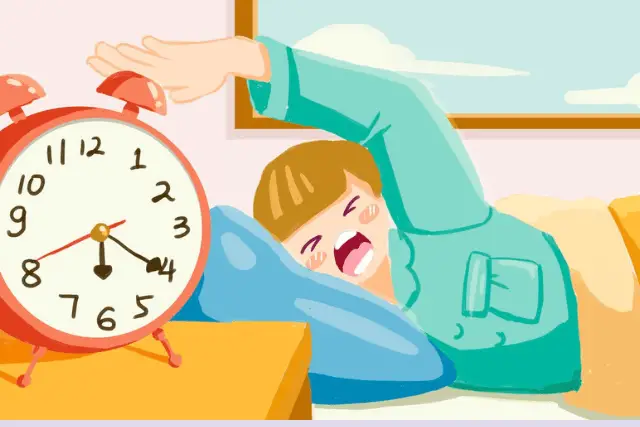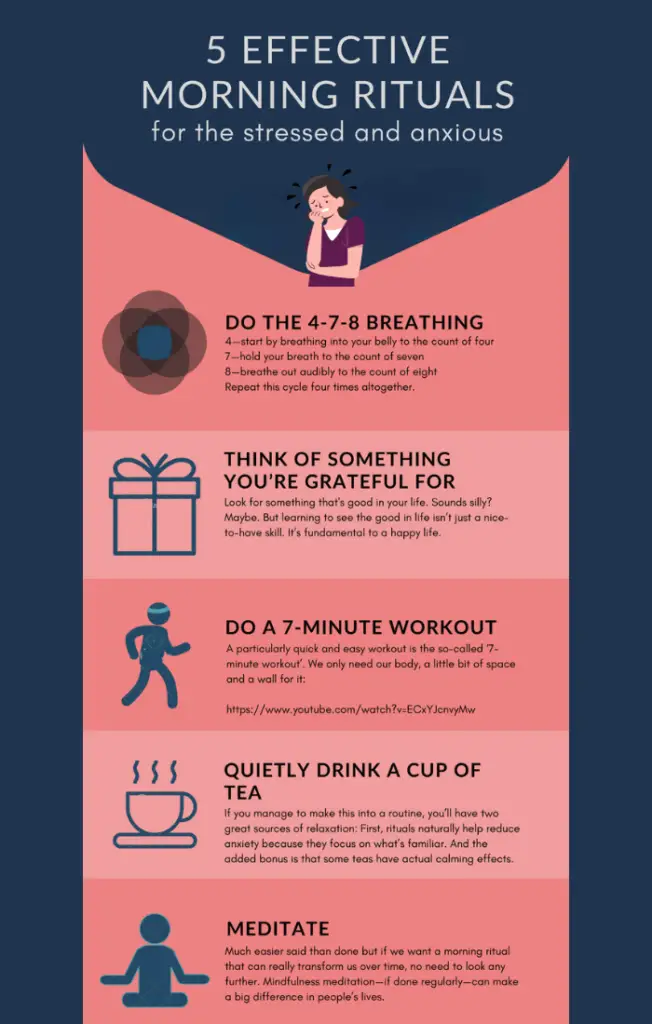Waking up with anxiety can make starting the day difficult. If you feel anxious upon waking in the morning, it is a cortisol awakening response. Cortisol is a stress hormone and when the cortisol level is high in the body, you feel anxious. Many people feel anxious in the morning. It may be because they have a lot of work to do throughout the day.
However, it is essential to calm morning anxiety when you wake up. In this article, we’ll learn how to deal with severe anxiety in the morning. It is important to understand the causes and symptoms of morning anxiety. We’ll identify some tips that help reduce anxiety in the morning.
Table of Contents
What is Morning Anxiety?
Morning Anxiety is an underlying anxiety disorder. This type of anxiety can disturb your heartbeat, and stomach and produce negative thoughts in your mind. Several things can trigger anxiety in the morning such as stress at work, personal challenges, or completing some tasks throughout the day.
It is a type of generalized anxiety disorder. It means people with anxiety wake up feeling anxious. It is important to reduce depression and anxiety, that you may feel in the morning. Understanding the causes and symptoms of morning anxiety is the first step to reducing feelings of anxiety.
What Causes Morning Anxiety?
Morning anxiety is a common problem, but it may produced by some common or specific triggers.
- Worrying about daily tasks
- Worrying about work tasks
- Insomnia such as not getting enough or restful sleep
- Your mind is always racing with negative thoughts, even when sleeping.
- Personal problems, such as relationships, family, or financial issues.
- Adjusting to new conditions or routines
- Having a mental health disorder such as Generalized Anxiety Disorder

Morning Anxiety Symptoms
Some of the symptoms that contribute to morning anxiety are the following:
- Waking up with feelings of anxiety
- Increased heart rate
- Upset stomach or feelings of nausea
- Your body may be sweating in the morning
- May feel frustrated or annoyed with certain things
- Feel tired and lack of energy
- Have anxious thoughts in mind
It is essential to understand these signs and symptoms earlier to reduce anxiety upon waking in the morning.
Tips for Coping with Morning Anxiety
Here are certain tips that can help you feel less anxious, have better sleep, and wake up active in the morning. Follow these tips to prevent anxiety in the morning.
1. Add calming rituals to your bedtime routine
Get your day started with a calming activity and make a meditation ritual to do daily. This may include activities like studying a book, taking a warm bath, or doing some gentle stretches. When you’ve got a strong routine to do in the morning, it can help you cool down and prepare for a good night’s sleep. When you have a good sleep, it allows you to wake up feeling refreshed rather than anxious.
2. Avoid screens before bed
Spending time on your phone, tablet, or computer before bed can make it tougher to cool down. The blue light from displays can intervene together with your sleep, making it harder for your mind to feel that it is time to relax. Try to avoid screens for at least 30 minutes before bedtime. Instead, engage in mindfulness activities that calm you, like reading or listening to a track of soothing music.
3. Cut back on caffeine
A lot of caffeine can increase emotions of tension and make it tough to sleep well. If you drink plenty of coffee, tea, or energy drinks mainly in the afternoon and nighttime, it will make your mind active and not allow you to relax. Switching to herbal tea or decaffeinated options can be a good manner to still enjoy a warm drink without the jitters.
4. Try breathing exercises to ground yourself
When you wake up feeling anxious, deep breathing exercises can help calm your mind and body. Take a moment to sit quietly and breathe in slowly through your nose, letting your stomach fill with air. Then, exhale lightly through your mouth. Doing this for a couple of minutes can reduce anxiety and depression and make you feel in the present moment.
5. Eat breakfast
Eating a healthy breakfast can set a positive tone for your day. Eating something nutritious provides energy and keeps your blood sugar stable. It can help reduce feelings of anxiety. Aim for a balanced meal with protein, healthy fat, and whole grains, like eggs with toast or yogurt with fruit and nuts.
6. Try exercise
Regular exercise in the morning is the best way to reduce anxiety. Whether it is a brisk walk, yoga, or a workout at the gym, exercises release endorphins that boost your mood. Even a short morning walk assists you to feel more energized and equipped to tackle the day ahead.
7. Make a morning routine
Establishing a morning routine can assist create a feeling of order and control throughout the day. Plan out simple tasks that you enjoy, like getting showered, enjoying a cup of tea, or listening to music. Having a daily routine can lessen emotions of anxiety and make your mornings feel more manageable.

Conclusion
Morning Anxiety is an underlying anxiety disorder. This type of anxiety can disturb your heartbeat, and stomach and produce negative thoughts in your mind. It is important to identify symptoms of anxiety to reduce your morning anxiety. Avoid screen at least 30 minutes before bed and add calming activities to your bedtime routine.
Eat a proper breakfast and exercise to reduce your anxiety in the morning. Try to talk to a mental health professional or a psychiatrist. Experts can understand your situation better and suggest treatment accordingly.

